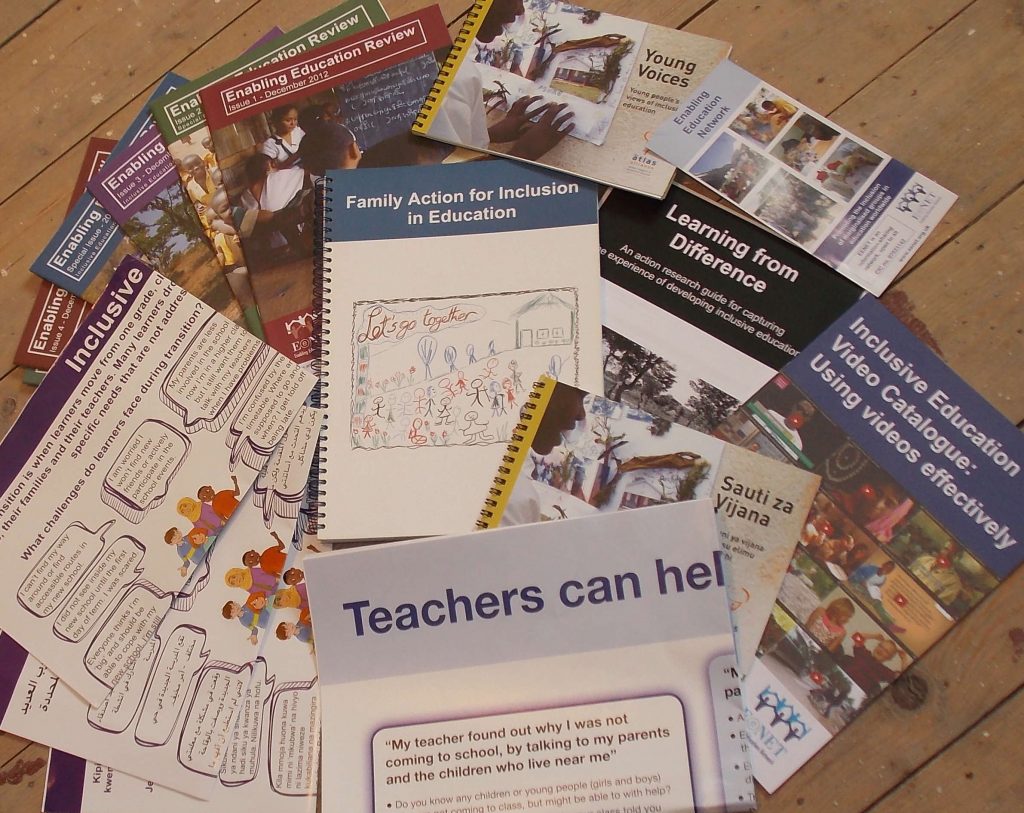A blog by Christopher Chiwalo, teacher, Malawi and Ingrid Lewis, EENET.
As one of the regular readers and a beneficiary of EENET’s printed materials, I wish to express my views on why donors should support the printing and distribution of EENET’s materials.
First, there are network problems in remote areas since network providers shun these areas thinking they cannot make profits. Hence people in these areas, e.g. teachers, do not have access to the internet.
Another problem is the exorbitant prices of computer equipment, e.g. laptops, smartphones, tablets. As a result, most people like me opt for cell phones with basic internet access which cannot enable one to download or read a book online or in PDF format.
Therefore, if donors only fund the online publishing of EENET’s materials, then we are being left behind. EENET’s printed materials are extremely important to us all since we read how others are dealing with the problem of exclusion and we learn from one another.
Donors should still fund the printing and distribution of paper copies of EENET’s materials.
—————————————————————
This message is from Christopher Chiwalo, one of our regular readers in Malawi.
Christopher emailed us recently, concerned that he hadn’t received a printed copy of the 2017 edition of Enabling Education Review. Unfortunately, we had to reply that we didn’t have the funding to print EER last year. (This year is different – keep an eye out for the 2018 edition coming very soon!)
Christopher’s response (his message above) sums up why EENET remains totally committed to publishing and distributing a range of documents in hard copy, despite the global trend towards paperless communication and learning.
From an economic and environmental perspective we fully support the drive to reduce paper wastage. But printing and sending hard copies of our materials to important education stakeholders who have no access to electronic media remains essential.
I think the growth in basic internet access globally has fooled many into thinking the digital divide problem is well on the way to being solved. It really is not. There is a vast difference between being able to post or read a message on Facebook, and being able to access a 50-page training guide, print it, and use it to support teachers in your school to build their inclusion skills.
We love the fact that we can now communicate easily and quickly with many of our network members via social media. But for us to effectively document and share experiences on inclusive education we need more than a 140-character tweet!
We need funding to print and post hard copies of inclusive education materials to our primary audience – education stakeholders like Christopher working in school communities across Africa, Asia, Latin America and the Middle East.
This blog is not just a “please fund EENET” message (but if you want to, that would be great!). It’s a plea to everyone who writes and publishes inclusive education guidance, research, case studies, etc. Many of the readers who most need and most benefit from your hard work will never see it if your documents remain hidden on the internet.
I would love to see every organisation working on inclusive education in development and humanitarian contexts requesting and receiving funding to print and distribute hard copies of any documents they publish. This could involve distribution locally or nationally where they work, or internationally using their own or EENET’s global grassroots network.
We don’t want to see anyone excluded from the process of learning about inclusion! So please join us in maintaining a commitment to hard copy distribution of essential documents. Help us ensure the divide between those who can and those who can’t access information on inclusive education becomes a thing of the past.

